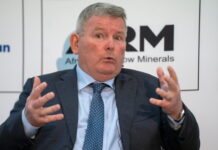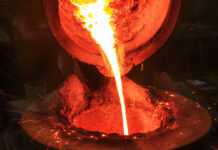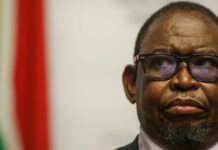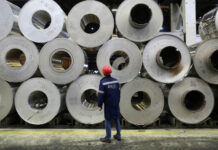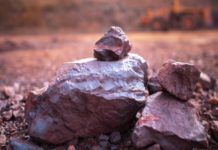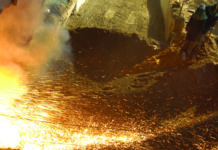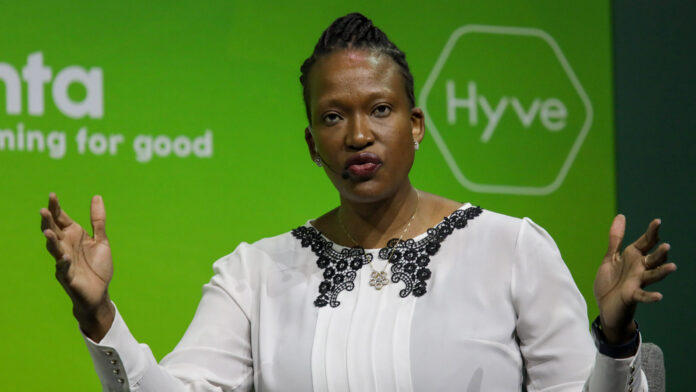
KUMBA Iron Ore CEO Mpumi Zikalala on Tuesday said there were signs of a “stabilisation” in the performance of Transnet Freight Rail (TFR), the South African government’s ports and rail utility.
Amid a 4% increase in ore railed from Kumba’s mines in the Northern Cape to Saldanha Port in the Western Cape (to 18.9 million tons from 18.1Mt previously) in the six months ended June, Zikalala said the improvement “demonstrates the progress made” through public/private efforts. These are the Ore Corridor Restoration (OCR) and the Ore Users Forum (OUF).
The OCR is a new programme agreed with Transnet in which it and users identify urgent logistical deficits which users fix. Kumba said that Transnet would pay refunds at a later stage. On this front, some R942m described as “other income” in Kumba’s R15.9bn in Ebitda relates to a payment from Transnet in terms of a long-standing take-or-pay agreement.
Equipment availability at Saldanha Bay port also improved helping Kumba achieve a 3% increase in sales to 18.7Mt for the six months ended June (8% higher in the second quarter).
Transnet is hardly out of the woods as demonstrated by two train derailments during the period and an unscheduled shut to repair a stacker-reclaimer at Saldanha Port. “This is a stabilisation,” Zikalala cautioned in a press call. “There is still a lot of work to be done. Fixing this will take time,” she added.
Financially, Transnet appears stricken. The government this week approved another R94.8bn in guarantee support which comes after the entity was put on credit watch in recent months, elevating concerns about its unsustainable debt burden.
As a result, there was real urgency in department of transport minister Barbara Creecy’s efforts to reform the rail and ports sector, said Zikalala. She added that Kumba had lodged its interest helping to operate the ore corridor via a Request for Information (RFI) issued by Government in March ahead of a Request for Proposal (RFP), set to be in August.
There had been more than 50 applications in terms of the RFI, each of them likely to be differing in some way. Critically, Kumba has not recommended that the private sector own infrastructure, such as rail owing to the relatively short mine lives, said Zikalala.
Kumba has plans to mine from the region until 2040 at least, but the rail has to operate beyond then. “We’ve actually said that we don’t think that they should sell the assets,” said Zikalala. “We don’t think that that would be the right thing to do for the country.”
Earnings
Increased iron ore sales combined with decent prices achieved – an average iron ore price of $91/t which was above the benchmark for the six months of $84 (met metric tons) – resulted in flat interim profit and headline earnings year-on-year of R9.3bn (2024: R9.4bn) and R22.17 per share (2024: R22.27/share) respectively.
Second quarter production at Sishen declined by 3% year-on-year to 6.4Mt (6.6Mt) while production at Kolomela was 11% higher at 2.8Mt (2.5Mt).
For the half-year total finished stock was broadly flat at 7.4Mt (2024: 7.5Mt), with mine stock levels at 6.4Mt (6.9 Mt), and stock at Saldanha Bay port at one million tons (2024: 0.5Mt). Kumba said it was sticking to full-year production and sales guidance at between 35Mt and 37 Mt for both.




